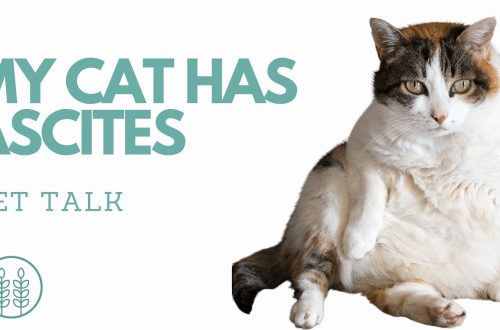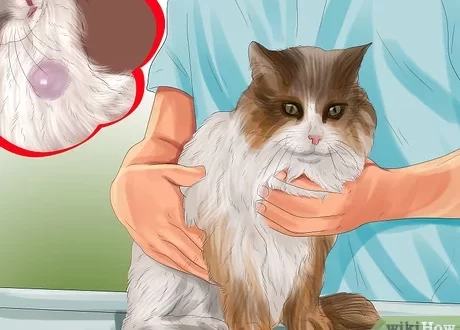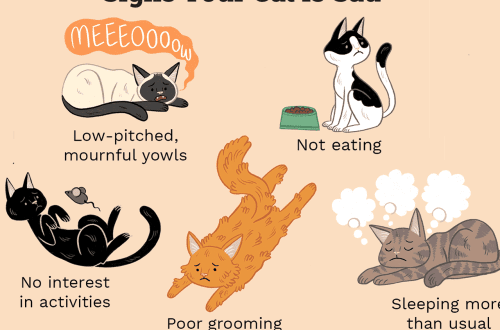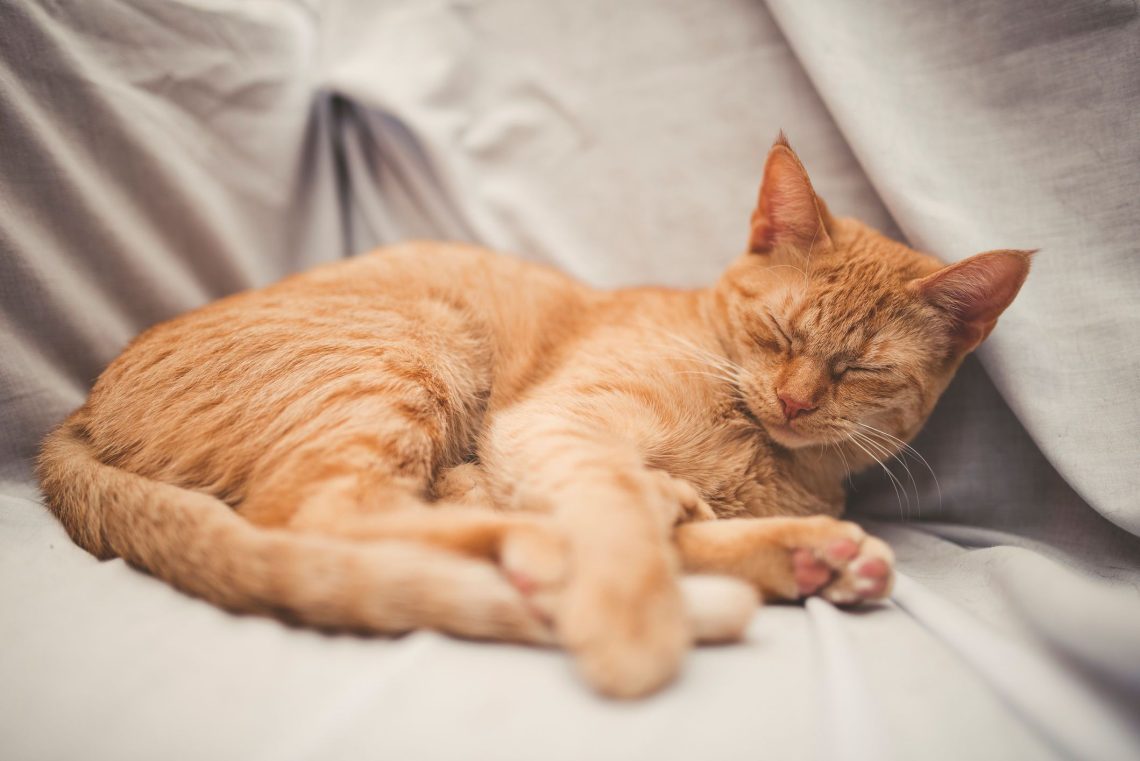
Why does the cat snore in its sleep?
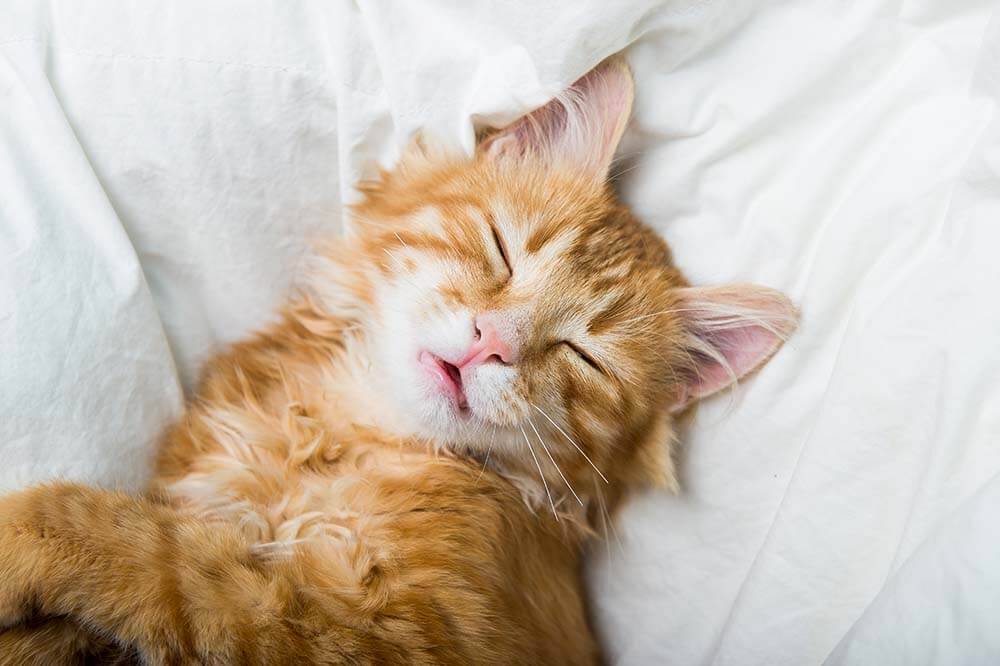
Contents
What causes snoring in cats
Snoring is the sound produced by the vibration of the soft tissues of the upper respiratory tract during sleep. This may be due to the presence of any obstruction to the passage of air into the lungs.
First of all, cat snoring, as a normal phenomenon, can be associated with the physiological characteristics of a particular animal. During deep sleep, the whole body relaxes, including the muscles of the throat and respiratory organs. This causes a constriction of the airways, which contributes to the vibration of the soft tissues due to the oncoming air during the next breath.
Sometimes a cat will make noises when sleeping if its body is in an unusual, strange sleeping position. In certain positions of the head and body, there may be a situation with a limited passage of air flow, which leads to snoring. After a change in body position, cat snoring usually stops.
In addition, there are brachycephalic cat breeds that tend to snore, sniff, or snort more due to the structure of the muzzle. Strange sounds in them can accompany breathing even during wakefulness. This is due to the shortening of the facial bones of the skull and nose, the reduction of the nostrils and the narrowing of the nasal passages. The combination of these factors, combined with the elongated soft palate and surrounding tissues, is more likely to block the airway. If a brachycephalic kitten sniffles through its nose in a dream, this is normal, because the point is in the peculiarities of its anatomy. But, of course, if there are no other symptoms.
Brachycephalic breeds include: American Burmese, Persian, Exotic Shorthair, Himalayan, American Shorthair, Devon Rex, Singaporean, British, Scottish.
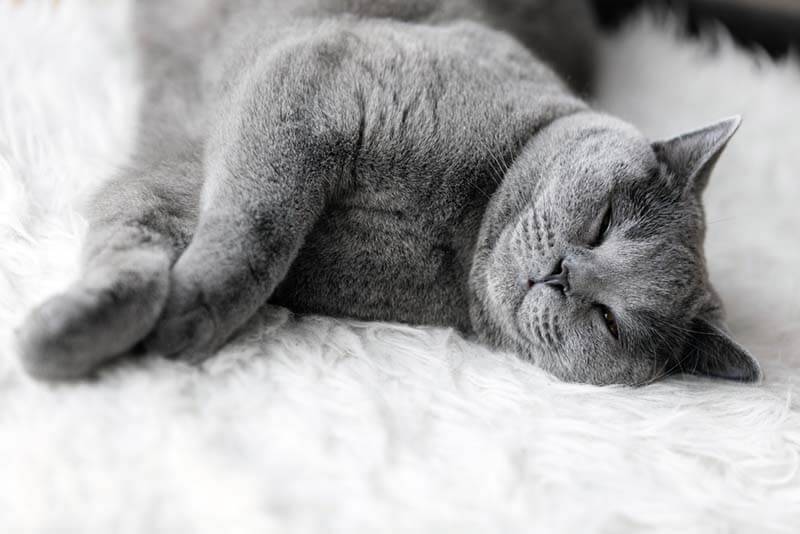
What kind of snoring happens
When a cat sniffs loudly in a dream or snores, the nature of the sounds made can vary. It all depends on the specific animal, the nature of the problem and the location of the pathology, if it exists, of course.
There are two main types of abnormal sounds in obstructive airways disease: stertor and stridor. They occur either on inhalation or exhalation, depending on the location and severity of the obstruction.
Stertor occurs as a result of vibration of soft tissues or in the presence of secretions in the upper respiratory tract. When they vibrate, a classic low-frequency noise is created. It is this sound that is called snoring. Most often, it occurs due to airway obstruction inside the nose or throat itself.
Stridor occurs when hard tissues vibrate. The result is the formation of a sharp, high-frequency sound. It may occur due to obstruction of the nose. Most often, stridor is associated with narrowing of the larynx (for example, due to paralysis of the larynx or collapse of the trachea).
Sometimes both types of pathological noises can be accompanied by additional characteristics: sounds can be dry and wet, crackling, hoarse.
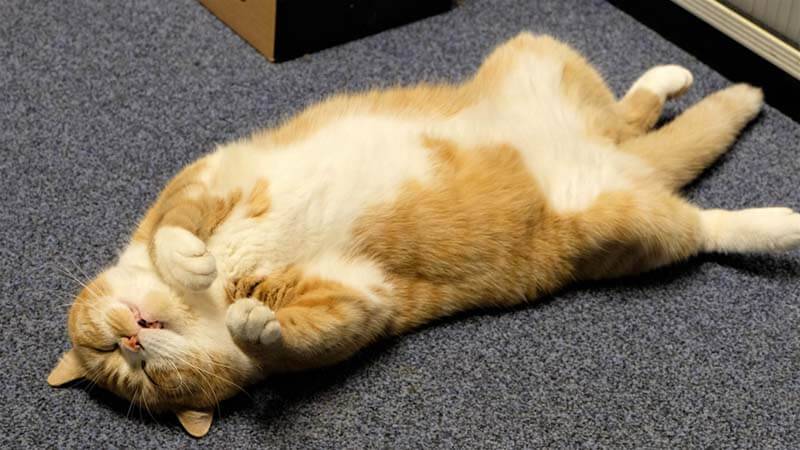
Why a cat can snore or snuffle in a dream – 10 reasons
Physiological features
They are found in brachycephalic breeds (breeds with shortened nasal passages and an elongated palate), as well as in all breeds during relaxation and an unusual body position during sleep (this was written above).
Elderly age
The muscles around the nose, pharynx and larynx lose their tone with age, causing the vibrations in these areas to become more intense.
Excess weight
In obese animals, the tissues surrounding the upper respiratory tract exert additional pressure, blocking the passage of air.
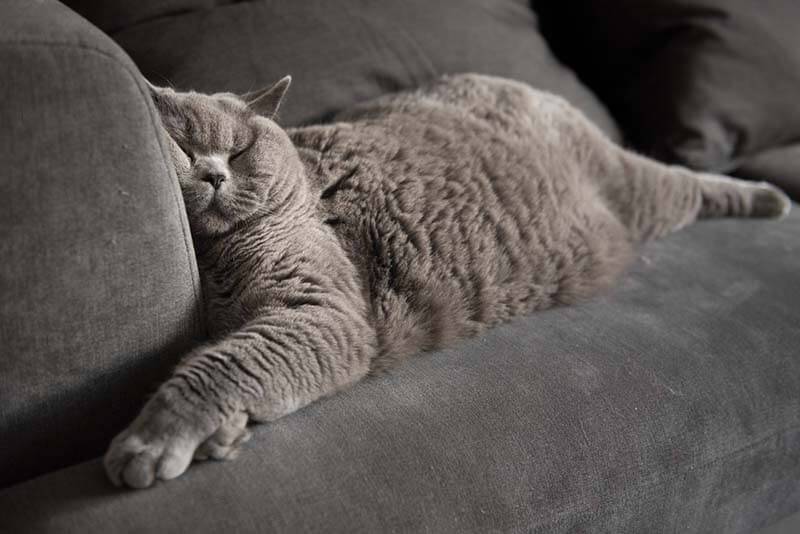
Upper respiratory tract infections
They are caused by fungal, viral, bacterial agents and are accompanied by inflammation, swelling of tissues, accumulation of mucous secretions that prevent normal breathing and lead to narrowing of the nasal passages.
Foreign objects in the airways
The natural way for animals to explore the world through the sense of smell can lead to the entry of foreign objects into the nasal cavity. Debris, food, plant materials (grass of grass) or other objects can get stuck in the nose, causing snoring.
Neoplasms, polyps
They are both benign and malignant in nature and can partially or completely block the passages in the nasal cavity, larynx.
Asthma, allergies
Both conditions cause inflammation and severe swelling of the tissues in the airways and can additionally be complicated by infections of a viral, bacterial nature.
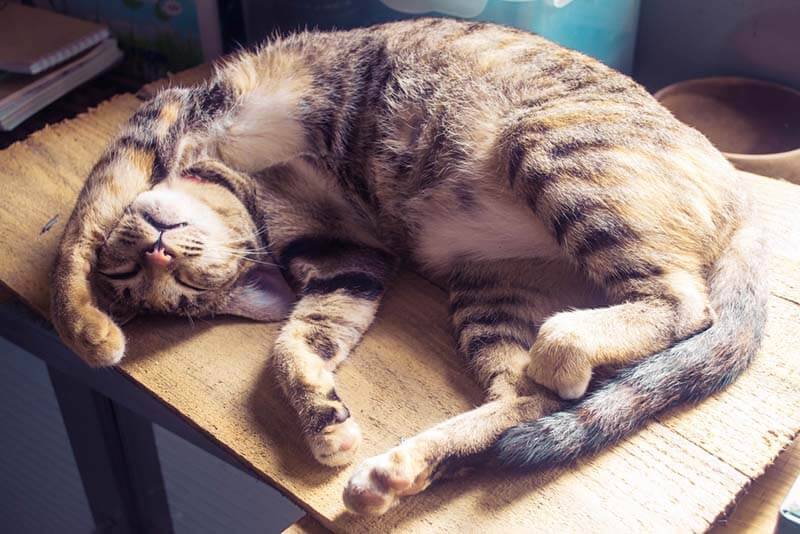
Structural abnormalities of the upper respiratory tract
These include: an elongated palate (it closes the entrance to the trachea); stenosis (narrowing) of the nostrils; nasopharyngeal stenosis (narrowing of the common nasal passage); hypoplastic (narrowed) trachea; inverted laryngeal sacs (obstruct the passage of air). These pathologies are mainly found in brachycephals, but are sometimes found in breeds with a normal structure of the skull bones.
Periodontal disease
These pathologies can lead to an oronasal fistula (hole) between the oral and nasal cavities with copious purulent, bloody discharge, swelling of the tissues, which, in turn, contributes to the appearance of snoring or sniffling.
Climatic conditions
Low air humidity leads to excessive dryness of the mucous membrane of the airways and oral cavity, causing snoring.
When is snoring normal?
In general, snoring is considered normal if it occurs only during sleep without a change in the behavior of the animal and at the same time is not accompanied by other symptoms.
The sudden onset or progression of snoring, sniffling, or when the cat snores and sniffs while breathing around the clock can indicate a problem. Also abnormal is the occurrence of additional symptoms: coughing, sneezing, discharge from the nasal passages, shortness of breath and other signs.
The video shows an example of normal snoring
When should you contact a veterinarian?
An emergency visit to a veterinarian requires the appearance of symptoms such as shortness of breath, breathing with an open mouth, temporary cessation of breathing (often during sleep), poor appetite, apathy, and fatigue.
If your cat starts snoring more or louder than usual and/or other symptoms (coughing, sneezing, nasal and eye discharge) appear, this may indicate a worsening condition that requires specialist advice.
Diagnosis of the main causes of snoring will be as follows: X-ray examination of the chest; clinical and biochemical blood tests; tests for respiratory infections. In some situations (foreign objects, neoplasms, polyps), additional diagnostics are required: endoscopy; computed tomography or magnetic resonance imaging of the head, cytological and histological examination of neoplasms.


Treatment is primarily aimed at eliminating the underlying cause and is prescribed after a clinical examination and diagnostic procedures. In most cases, it takes place on an outpatient basis with the use of medications.
If allergies are suspected, asthma is prescribed corticosteroid, antihistamines. In the presence of respiratory infections, antibacterial, antiviral drugs are used. In situations with neoplasms, polyps, structural abnormalities of the upper respiratory tract, as well as foreign objects, surgical intervention is necessary. In emergency situations, sedation of the animal and additional oxygen support are required in a hospital veterinary clinic.
If the cat is overweight, it is necessary to seek the advice of a veterinary nutritionist to select the correct diet and develop a weight loss program.
With low humidity in the habitat of cats, it is recommended to use a humidifier, which will prevent the mucous membranes of the respiratory tract from drying out. You also need to create a comfortable sleeping place so that the cat can sleep comfortably.
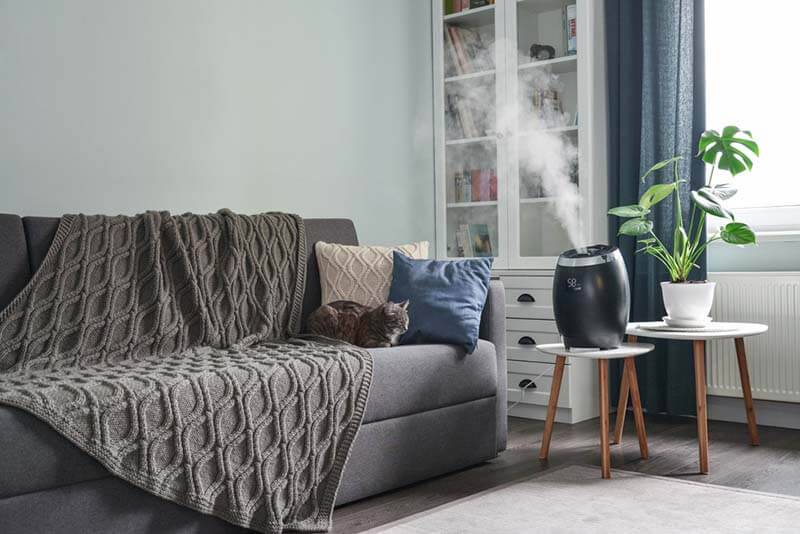

Answers to frequently asked questions
October 21 2021
Updated: October 25, 2021





